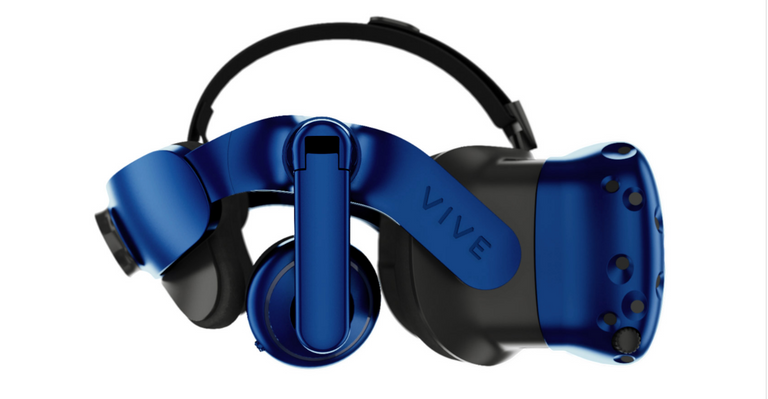
Image Courtesy HTC
Mass Appeal VR?
This week at CES 2018 in Las Vegas, Nevada, HTC unveiled a new version of their high-end VR headset dubbed the 'Vive Pro'. To date, the largest of many problems in the Virtual Reality sphere is lack of visual clarity. By offering a bump in display resolution from 2160 x 1200 to 2800 x 1600 displays, the Vive Pro looks to tackle that issue head on. Upload VR states the displays uses new Samsung OLED displays that can also be found in the Samsung Odyssey Headset. The increase in sub-pixels drastically reduces the screen door effect found when looking in the current Vive headset.
In addition to improved optics, the headset offers better balance, built-in audio headphones (that can be detached), more ergonomic button control and more room/control for putting over glasses. The sleek new color looks great as well. Read an in-depth review of all the tech specs by Road to VR here.
While there is no confirmation of the work-in-progress Vive Knuckles, the new hand controls that fit over the wrist allowing them to be worn rather than held and allowing for in-game grasping of objects to increase immersion, will be released with the new headset, there is speculation they could be bundled together later this year. The headset also will come with 2.0 basestations that allow for larger and better tracking areas.
No price has been revealed on the new headset, which leads some consumers to worry that this headset will be marketed more toward business & enterprise that the early adopting consumers that have kept the headset afloat. The original Vive released for $800 and consumers hope that is the price ceiling if Vive continues to want to be a consumer driven headset. Although they might be conceding that market with PSVR having already sold over 2 million units. If it's any consolation, the minimum specs to run the original Vive and the Pro version are the same, so no computer upgrade will be needed for current Vive owners.
Ready for Primetime?

While this iteration is most certainly a step in the right direction, mass adoption of Virtual Reality will not occur until optics become fully immersive and this headset still has some screen door effect, anti-aliasing & mura (pixel-defect) issues, and god rays (sunbursts or lens flares) from the fresnel lenses. This iteration should improve the quality of the experience enough to make people want to try it again, but won't make the headset a necessity for every household.
PSVR owns the consumer VR space. Vive is smart to make a push for the business market.
Microsoft MR headsets are helping to push adoption, I know some of the vive and rift purists hate them but they are good for the ecosystem overall. I love my Samsung Odyssey.